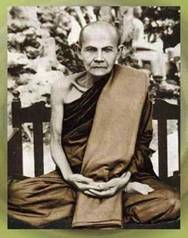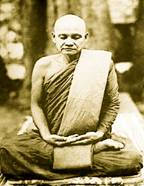Sila Parami is the second of the ten parami or ten perfections. The ten perfections refer to the development of our inner qualities. Morality is essential and the basis of our practice. It means we try to use our body, speech, and mind to practice skillful deeds and avoid unskillful ones.
Sila Parami is the Law of Nature
The Buddha’s teachings have been summarised into three principles – do good, do no evil, and purify the mind. Every Buddha of the past, present, and future teaches these principles. Skillful deeds lead to wholesome results. Unskillful acts lead to suffering. According to the law of nature, we practice ethical principles, the law of cause and effect; it is not man-made law. Man-made laws are based on what the majority think is correct. The most important thing to remember is not to do any harm.
The Noble Eightfold Path, the path which leads to enlightenment, is built up with the practice of sila (morality), samadhi (calm), and panna (wisdom). Sila in the Noble Eightfold Path contains right speech, right action, and right livelihood.
Why Practise Sila?
Why do we want to practice sila? If you are a meditator but don’t practice sila, it will make your meditation difficult. If you have regrets or guilt, it makes your mind cloudy, sticky, and restless. It does not give you peace of mind. Keeping these moral principles can help you to keep your mind still.
If you want a healthy body, you need healthy food, exercise, and get enough rest. When these three things come together, you can have a healthy body. When it comes to the mind, you also need three things to keep it healthy. You need morality, calmness of mind, and wisdom to guide you on your way.
The Five Precepts
In Buddhism, laypeople keep the five precepts, although the Buddha did not explicitly say these are the things we have to do. He only advised and recommended keeping these moral principles on the path to enlightenment. Even if you are not aiming for enlightenment, these principles help you live a wholesome and happy life.
The first precept is to refrain from taking any lives. But also not to do any physical harm. That’s because all beings want to live and not to die. It also means trying to protect others’ lives. In Thailand, people go to the market and buy animals such as fish or frogs to free them before they are slaughtered. They give them life.
The second precept is to refrain from taking things without asking. Not to steal others’ things because we also do not like to be separated from things we owe. It means you protect others’ property and learn to be generous. The third precept is not to have any sexual misconduct. For example, we avoid sexual relations with someone who is underaged or married. It also means to be faithful to one’s own partner. And it goes even much more profound. We should become aware when our senses are drawn to objects that create pleasant feelings or trying to get rid of things that cause unpleasant feelings. We learn to be mindful of our sense doors to not end up getting attached and suffering.
The fourth precept is to refrain from wrong speech like lying, harsh- and divisive speech, and avoiding idle talk. The positive side is to speak the truth in a friendly and unifying way and speak meaningfully. The fifth precept is to refrain from alcohol and drugs. The first four precepts follow the law of nature, while the fifth is to prevent clouding the mind.
How alcohol can affect your practice
There is an exciting story on the effect it causes breaking the fifth precept. A Tibetan monk from a long time ago kept the Mahayana precept of not eating meat. He also held the vow of celibacy as an ordained monk.
One day, a demoness came and told him she would kill him unless he did one of these things – either he eats meat, sleeps with a woman, or drinks a bottle of alcohol. He did not want to die and also did not want to break his vows. Drinking alcohol seemed to be the least harmful. So he drank the alcohol.
He became so drunk and hungry, he ate a piece of meat. Then he was overwhelmed by lust and also slept with the woman. Too much alcohol can cause us to do things we usually wouldn’t do. You may lose your mindfulness when inebriated.
The Eight Precepts
When you stay in a temple, you keep eight precepts to support your meditation practice. The three extra precepts help you further develop concentration and mindfulness. The sixth precept is to not have any meals after lunch. In the temple, we have two meals – breakfast and lunch. If you have meals in the evening, digestion takes up your energy. It does not allow you to sit for a long time in the evening.
The seventh precept is no entertainment, such as listening to music or watching movies. It also means no adornments and cosmetics, and jewelry because it can be distracting. The eighth precept is not to indulge in sleep, so we avoid sleeping in a high luxurious bed. In a retreat, we recommend six hours of sleep only. It helps to support your practice when you take these eight precepts.
Fully ordained monks and nuns have even more precepts. The monks have 227, and the nuns have 311 monastic rules to keep. If the monastics can keep these precepts well, they are already on the path to enlightenment.
Five Blessings from practicing Sila
The Buddha said there are five blessings to be expected from practicing these precepts. Your wealth will increase, you will have a good reputation, and you gain confidence wherever you are. The fourth blessing is you have a peaceful death, and the fifth is after your death, you will be reborn in a happy state or a heavenly world.
Even if it is not for a good rebirth, practicing sila parami will be really useful for your practice.
There is one good exercise you can do to support sila parami. You can recall every night before going to bed if you did anything harmful during the day. Or if you did any good. Also, remember if you had desires or anger, but you could let go without getting attached to it.
Making an inventory of the wholesome and unwholesome deeds can help you improve your morality; it is not to create guilt in your heart. If you see that you have done an unskillful act, you can remedy it. Having done something skillful, you can feel happy about it. Also, if you see your mind attached to something, you can learn to let it go to not create suffering.
This is an excellent exercise you can do every day.



